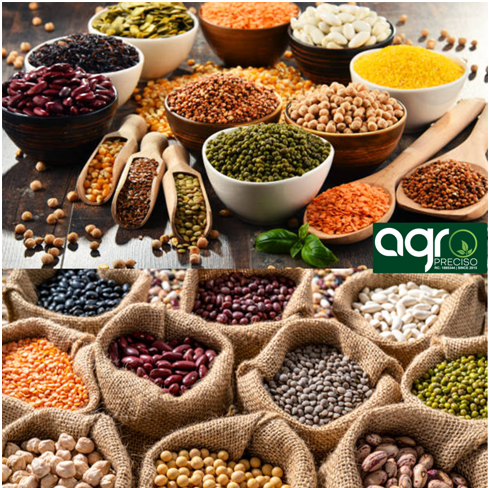Table of Contents
7 Lucrative Agro-Commodities That Can Easily Be Exported From Nigeria In 2023
Introduction
Nigeria is one of the largest economies in Africa and is endowed with a wide range of agricultural resources. Agriculture is the second largest sector of the Nigerian economy, accounting for over 20% of the Gross Domestic Product (GDP) and providing employment to over 70% of the population. The country is well known for its export of agro-commodities such as cocoa, oil palm, rubber, cotton, groundnuts, soybeans, and cashew nuts. This article will highlight these seven significant agro-commodities exported from Nigeria.
Cocoa
Cocoa is one of the top agricultural exports from Nigeria. The country is the fourth-largest producer of cocoa in the world, accounting for about 4.4% of global production. Cocoa is grown mostly in the western and southern regions of Nigeria, with Ondo State being the largest producer. Nigeria exports over 200,000 metric tonnes of cocoa annually, generating a significant share of the country’s foreign exchange earnings.
Palm Oil
Palm oil is another significant agricultural commodity that Nigeria exports. The country produces about 1.3 million metric tons of palm oil annually, making it the fifth-largest producer in the world. Palm oil is a vital ingredient in the food industry, and it is also used in the production of soap, cosmetics, and biofuels. Nigeria exports palm oil to countries such as India, China, and several European nations.
Rubber
Rubber is an agricultural product that is widely grown in Nigeria. It is mostly cultivated in the southern part of the country, where the weather is tropical. Nigeria is the third-largest producer of natural rubber in Africa, after Cote d’Ivoire and Liberia. The rubber trade in Nigeria began in the 1890s, and today, the country exports over 60,000 metric tons of rubber annually.
Cotton
Cotton was once a major foreign exchange earner for Nigeria. The country used to be the largest producer of cotton in Africa but is now the third-largest after Egypt and Mali. Nigeria produces about 150,000 metric tons of cotton annually, which is mostly consumed locally. The cotton industry has the potential to create jobs and generate foreign exchange if the necessary policies are implemented to revive the sector.
Groundnut
Groundnut is another widely cultivated agricultural commodity in Nigeria. The country is the second-largest producer of groundnuts in Africa, after Senegal. Groundnut is an essential cash crop for many smallholder farmers in Nigeria, providing a source of income and food security. Nigeria exports groundnuts to countries such as India, Sudan, and Senegal.
Soybean
Soybean is a relatively new crop in Nigeria, but it is quickly gaining popularity among farmers. The crop is predominantly grown in the northern part of the country, where the climate is suitable. Nigeria has emerged as one of the leading producers of soybeans in Africa, with an annual production of over 600,000 metric tonnes. The crop is used mainly as animal feed, and Nigeria exports soybean meal to countries such as South Africa, Ghana, and Egypt.
Cashew Nuts
Cashew nuts are one of the fastest-growing exported agro-commodities in Nigeria. The country is the fifth-largest producer of cashew nuts globally, with an annual production of over 200,000 metric tons. Cashew nuts are in high demand globally, especially in Asia and Europe, and Nigeria exports the majority of its cashew nuts to these regions. The crop is grown mainly in the southern part of the country, and the demand for cashew nuts is increasing due to its numerous health benefits.
Agro Preciso is the best agro-commodities company in Nigeria that exports agricultural commodities to international buyers all over the world, including sesame seeds, raw cashew nuts, dried split ginger, soybeans, dried hibiscus flowers, tiger nuts, and many more.



Recent Comments